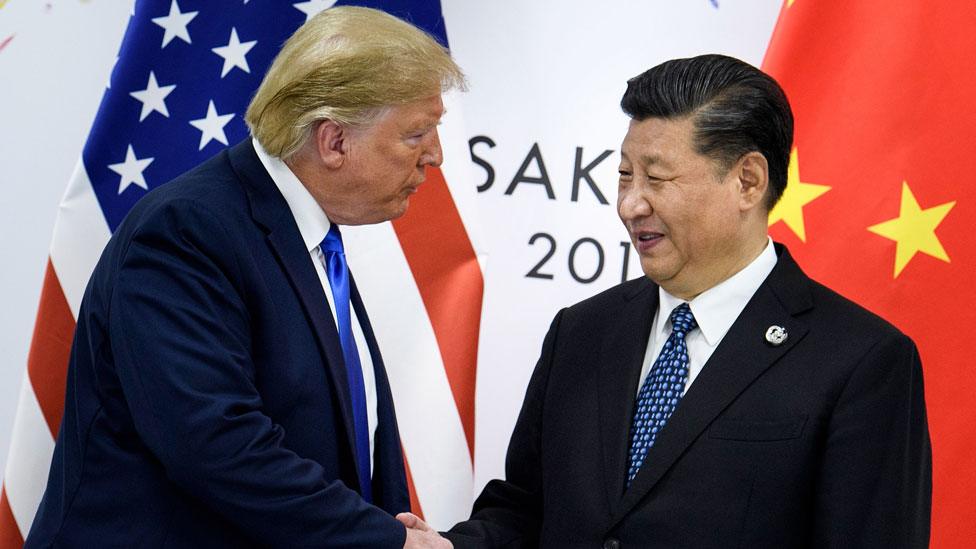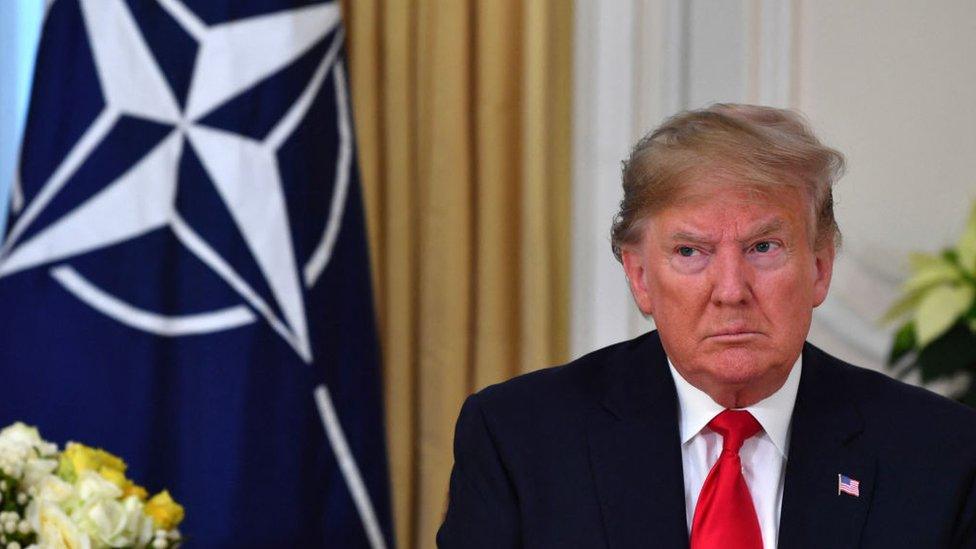What will emerge when post-WW2 order ends?
- Published
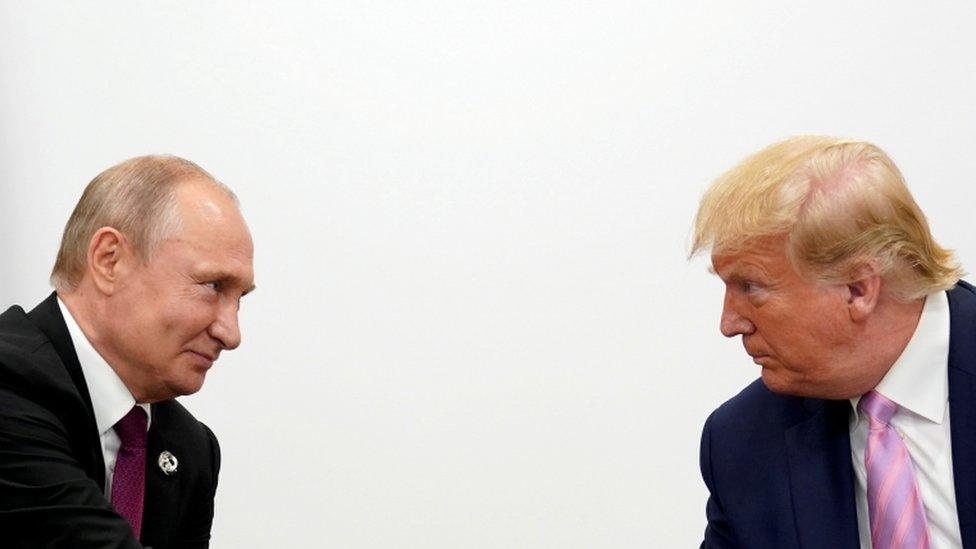
It was the war that, more than anything else, shaped our world.
Victory in Europe - or VE day - was clearly not the final chapter of the conflict. Japan remained to be fully defeated. But it was, nonetheless, a major milestone and marked an essential step towards ushering in a new kind of global order.
The US emerged from the conflict as a military superpower, having stolen a march on Moscow in terms of the development of nuclear weapons - henceforth the prime currency of global strategic power.
But the Russians soon caught up. Their decision to retain control over much of Eastern Europe dashed some of the more ambitious hopes for a less confrontational new order.
This prompted the creation of Nato and a seemingly permanent military and diplomatic linkage between the US and Western Europe. As journalist and historian Anne Applebaum noted in a Rusi webinar this week,, external it "created the idea of 'the West'; a values-based alliance system not just about borders but about ideas too".
But it wasn't just Nato. As Professor Michael Clarke underlines, there was a whole network of institutions.
"Very little was left of the pre-war structure of international institutions," he says, "and there was a conscious understanding - even more than in 1919 - that it was necessary to build a 'global order' from the wreckage."
The UN "was the keystone achievement; then the Bretton Woods economic system; the IBRD (World Bank), and the IMF". The UK was influential in much of this but US power, he says, was decisive.
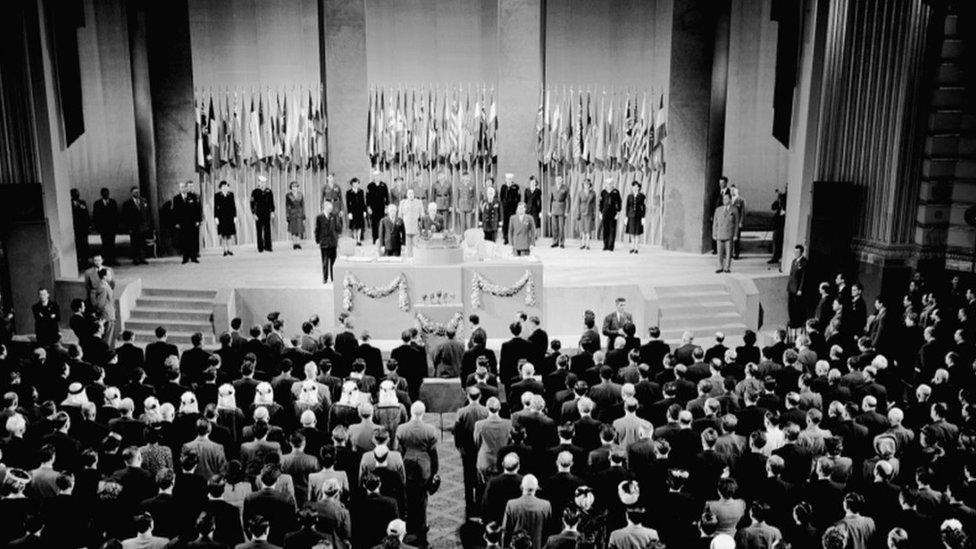
The United Nations, formed in 1945, now has 193 member countries
"Almost every international institution depended on US interest in, and support for, their establishment. From that clutch of Western-dominated organisations," he argues, "a very distinctive 'rules-based international order' evolved during the growth decades of the 50s and 60s. That rules-based order is now under real pressure because its political underpinnings are significantly changing."
The reason why is part and parcel of our everyday news agenda.
It is a rising China; the shift of economic power to Asia and the Far East; it's the rising populist trends even in many Western democracies.
Look at the clear tensions within Nato for example, prompted by President Donald Trump's questioning of its value to Washington, and the rise of a more authoritarian style of government in Alliance countries like Turkey and Hungary.
Nato's 70th anniversary celebrations were marked by tension
Anne Applebaum notes that in the US an isolationist strand in foreign policy has come to dominate the Republican Party. There are cracks, she argues, in the Western value system and generational change means that few if any politicians have real roots in the immediate post-war era.
Ignorance of contemporary history is another problem.
China did not just arrive on the scene in recent times. It was after all one of the original permanent members of the UN Security Council.
"The US always felt a special concern for China before and then during the war," Michael Clarke told me. It is not much remembered now, but he says "the US always viewed pre-communist China as a major power for the new world and one that would naturally counter-balance the old imperial empires of Britain and France.
"That," he says, "was why the US was so traumatised when it 'lost' China to the Communists in 1949. It did not get over that until 1972, and may now be falling back into another syndrome of 'disillusionment' over China's role in the world."
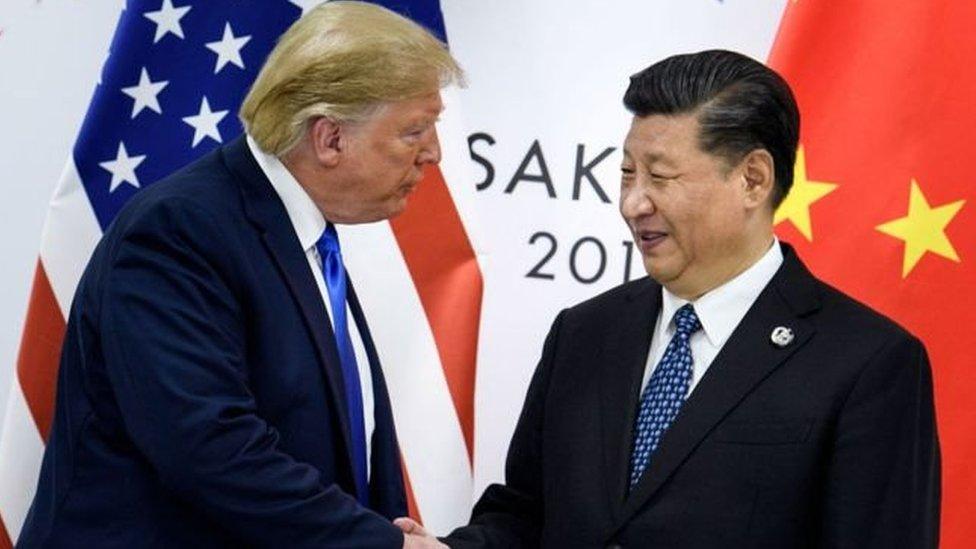
Tensions between the US and China have marked much of the Trump presidency
Professor Lawrence Freedman of King's College agrees, but stresses that during the Cold War it was "a different China issue." Unlike today, 20th century China was not seen as an economic and technological threat.
Indeed, as Michael Clarke told me, Washington's relative decline is more a symptom than a cause of the end of the post-war order. However, he believes that "Washington is now acting to accelerate it quite precipitously".
"The new, emerging 'world order'," he says, "is based on the simple fact that more than half the world's population now live within a circle that can be drawn around India, China and South East Asia."
"That drives the economic geography of the world, and that, in turn, eventually translates itself into national political power and thence into international political structures."
Trump has described the coronavirus pandemic as the "worst attack" on the US
So what, if anything, is going to change in the wake of the Covid-19 crisis?
Michael Clarke argues that the post-pandemic world will not cease to be the 'Asian Century', but its effects will likely create some real disjunctures for the coming decade.
In his view, "China will be a long-term loser from this crisis, both in political reactions to its handling of the issue and in national reassessments of resilience and supply chains that rely so heavily on China".
It is probably premature to make any fundamental assessment of what the post-Covid-19 international system will look like.
Safe to say the sense of public service and solidarity that emerged from WW2 carried over into the post-war settlement. It would be nice if something similar took hold now, but all the signs are that sadly, this is unlikely to be the case.
- Published24 March 2020
- Published1 May 2020
